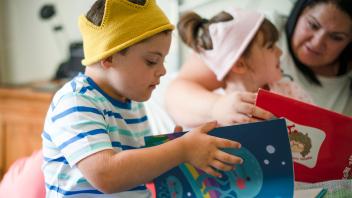There are celebrations for virtually everything these days but few have the staying power of Children’s Book Week . It was established in 1919 and is still going strong!
Children’s Book Week is under the auspices of the Children’s Book Council (CBC), the national nonprofit trade association of children’s publishers. One of the more significant actions taken by the CBC in conjunction with the International Reading Association was the establishment of the Children’s Choice Awards .
Since 1975, these awards have provided a voice for young readers who can now vote online for their favorite books.
Children’s choices for award winners may not be the same as those chosen by adults but adults can learn a great deal by looking at what children select. There’s a lot to learn when you look at the 2010 choices .
There’s lots of nonfiction on the list — and not what I consider merely “functional” nonfiction (you know the type — books that look like they came out of an encyclopedia: think “school reports”) but informational books that inform as well as intrigue and inspire.
There’s lots of humor and suspense in the books selected (e.g., The Book That Eats People by John Perry (Tricycle) and Let’s Do Nothing (Candlewick) by Tony Fucile)
All of the books seem to have an emotional truth to them. Some are more subtle or better written and illustrated than others, which must be expected, of course. All, however, demonstrate a respect for the audience.
These are books that mostly reflect children’s likes and dislikes and that should of interest and concern to adults. In the very adult field of children’s literature (in which adults write, illustrate, edit, publish, and ultimately purchase books for young readers in homes, libraries, and schools) it is critical to keep in mind the young reader and what books can do: introduce children to a lifetime of learning and pleasure.

